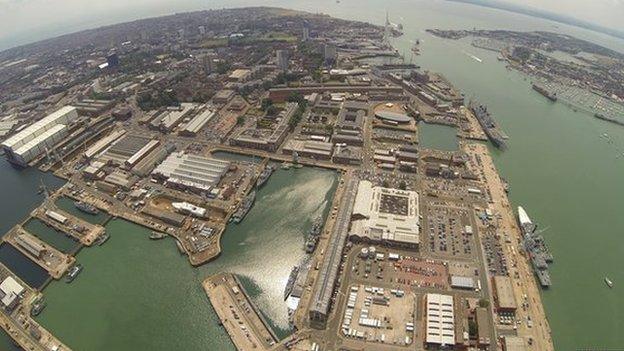What will Royal Navy warships look like in 2050?
- Published
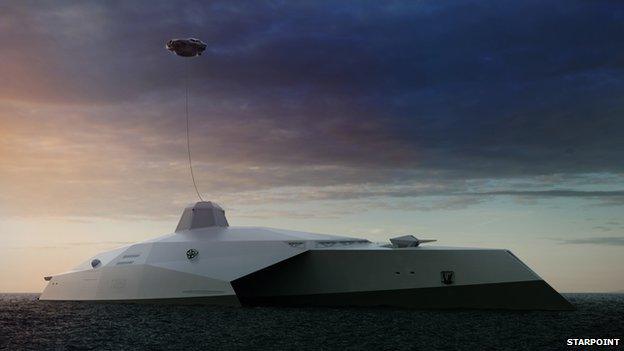
Startpoint hope the vessels may be able to turn translucent and 3D print their own drones
Futuristic images of what Royal Navy vessels could look like in 2050 have been developed by young British scientists and engineers. They hope it will offer a glimpse of how advanced vessels could be.
A group of British scientists and engineers are working for major players in the industry and the Ministry of Defence on a project called Startpoint.
Its aim is to ensure that the UK remains at the forefront of military maritime technology.
A 3D holographic command table in the operations room could potentially allow the crew to rotate and zoom into the battlefield, viewing it from space or underwater.
An acrylic hull that can be turned translucent to give all-round visibility, laser and electro-magnetic weapons and a fleet of drones all built on board with a 3D printer are also possibilities for the fleet.
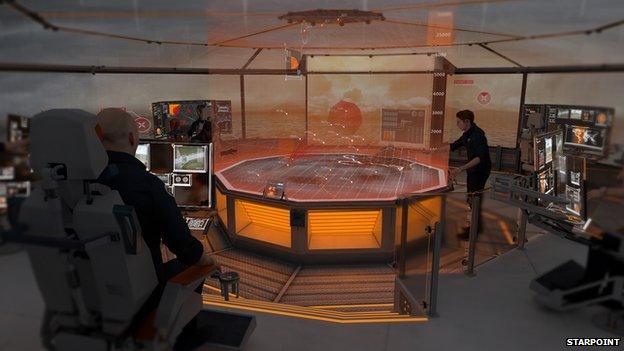
The 3D holographic command table would give the crew improved situational awareness, Startpoint hopes
The purpose of commissioning the designs was to push the industry top minds to explore what the Royal Navy could look like in its most advanced form.
You might have already seen some of it in science fiction movies. But the ideas behind what Startpoint, a collective of defence companies and the MoD, has called "Dreadnought 2050" are already rooted in reality.
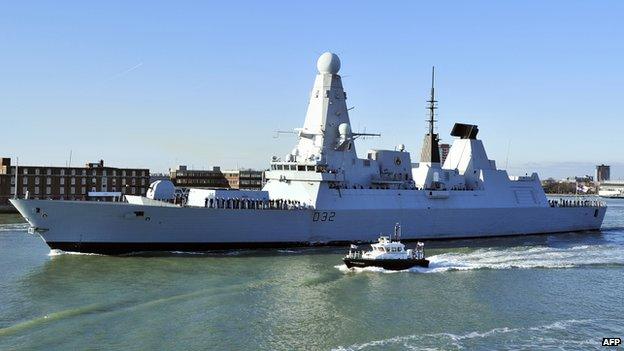
HMS Daring was the first of the Royal Navy's Type 45 destroyers
Stealth design, to ensure low visibility on radars, is already being adopted in most modern warships; the US Navy is developing laser weapons and electro-magnetic rail-guns; basic drones have already been produced by 3D printers.
HMS Dreadnought, which the futuristic warship is named after, was a 1906 Royal Navy ship that "rendered other warships obsolete with her advancements".
But some of these ideas will likely remain on the drawing board, not least because of cost. Hi-tech weapon systems don't come cheap.
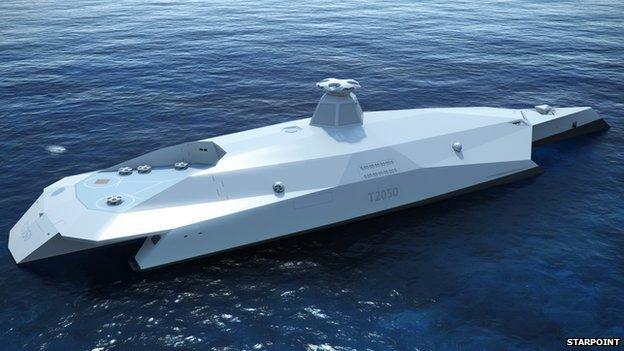
Startpoint's designs show "Dreadnought 2050" could be made of ultra-strong acrylic composites
The Royal Navy's most modern destroyers to date, the Type 45, cost £1bn each. The Navy was supposed to be getting 12 but has ended up with just six. Modern warplanes pose a similar problem.
The F-35, or Joint Strike Fighter, is the most advanced fighter ever developed. But while the Royal Navy's two new aircraft carriers were each supposed to have 36 of them, they'll end up sharing only 12.
The F-35 has become the most expensive weapons system ever ordered by the Pentagon and it is still suffering from technical problems.
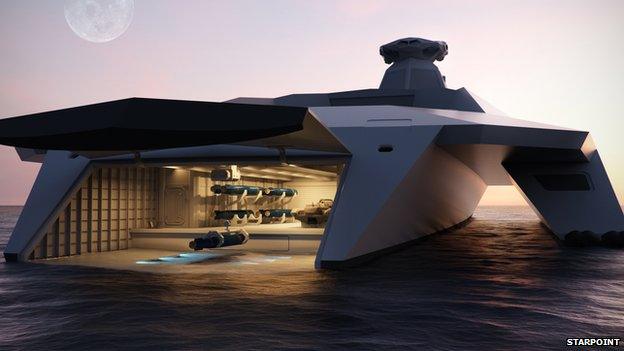
Dreadnought's "garage" would allow easy launch and recovery of next generation robotic systems
The challenge for the military is not just getting the latest technology. Mass also matters. The Royal Navy struggles to meet its demands across the world with just 19 frigates and destroyers. It also has to live within its means.
That may be why Britain's Chief of the Defence Staff, General Sir Nicholas Houghton, has already warned of the dangers of investing in "exquisite technology" while ending up without sufficient resources.
- Published24 July 2015
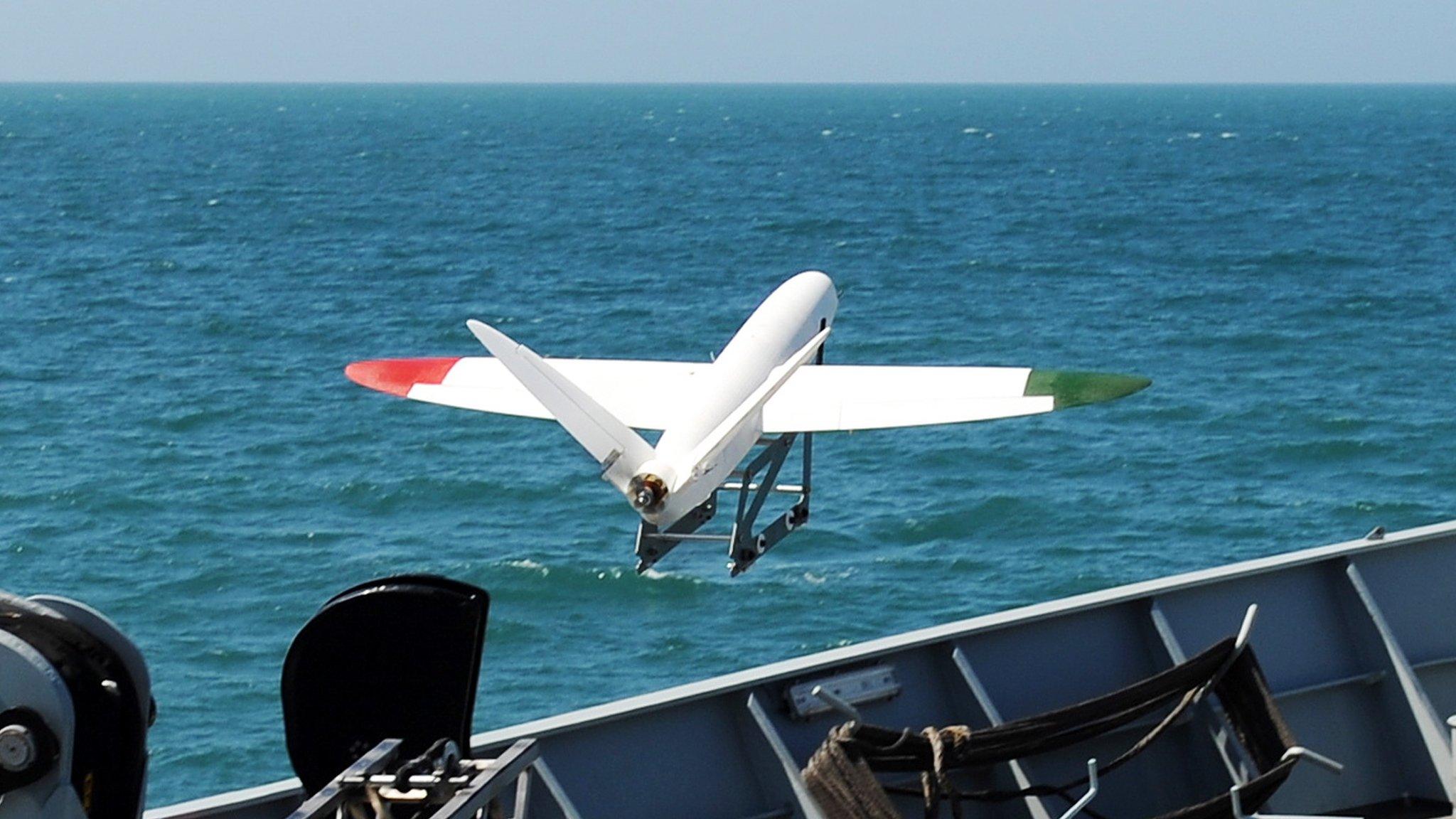
- Published30 January 2015
